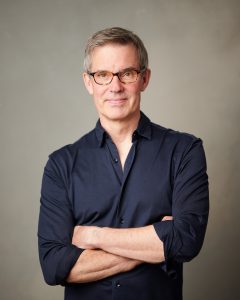
Introductory
Eugene Gendlin is an existential philosopher who wants to point us back to our lived experience. He invites us to stand in our experience and then to ask from there, What kind of world is this? What is a human being if this kind of experience is possible? He wants to return the human being to a central place in our various ways of understanding life. Since the 1950s, Gendlin’s interests have lead him from the writings of Dilthey, Heidegger, Merleau-Ponty, etc. into collaboration with imminent psychotherapists and psychological researchers. Gendlin saw therapy as a unique place where the process of symbolising experience could be explored. According to Gendlin,
A person struggles with and finds words and other expressions for unclear but lived experience. What was felt but undefined by the client was thought to be unmeasurable and incomprehensible and it made people uncomfortable to talk about such a variable. When it correlated with success in therapy while other variables did not, people began to try to understand it more seriously (personal communication, c.f. Friedman, 2000:47).
This ability to stay with an unclear (but clearly felt) bodily experience constitutes a natural form of self-reflection called ‘Focusing’. Gendlin and others found that they could help people re-gain and value this awareness of how we experience our life situations. Focusing is a way of paying attention to one’s being-in-the-world, one’s interaction as it is experienced through the individual (but not separate) body. A felt sense is a temporary wave from the sea of being – it is understood as on-going process, not internal content. The psychotherapeutic usefulness of Gendlin’s philosophy is that it is ‘methodologically individualised’. But, he is concerned that this might be ‘misunderstood as individual rather than social or historical. The historical process is individual when we think further. History moves through individuals because only individuals think and speak’ (c.f. Levin,1997,p.95). So, according to Gendlin, our experience is not ‘subjective’ or ‘intrapsychic’ but interactional.
Life is not pasted together out of unrelated bits of perception, inherited concepts, or isolated internal objects. ‘We humans live from bodies that are self-conscious of situations. Notice the ‘odd’ phrase ‘self-conscious of situations’. ‘Conscious’, ‘self’, and ‘situations’ are not three objects with separate logical definitions’ (Gendlin, 1999,p.233).
Felt sensing often occurs in the middle area of the body, where we typically feel things; throat, chest, stomach, abdomen. Thinking and speaking while in contact with felt sensing is exact and not arbitrary. For example, I cannot convince a ‘tight clouded’ feeling in my chest to be something other than what it is. And if out of that feeling comes the word ‘terrified’, and there’s a sense that word really fits, then I can’t just make it something else. I am not free to just change it, to mould it into something nicer or more acceptable, or more consistent with my view of myself as a courageous person. Focusing entails acknowledging the reality of what is, and then being with it, rather than doing to it.
At times, my client and I can pay attention to this level of awareness explicitly so that we are together in a way that keeps us in contact with the felt experience of our being together. This includes being open to a flow of real-time movement, the said and unsayable, that exceeds and may contradict our own ideas about therapy/psychology/philosophy. ‘Such sensitive phenomenological attention to an implicit speech which is “not yet formed” is precisely what is precluded by standard conceptual thinking about the body’ (Wallulis, in Levin, 1997, p.277-8). It is a radical hermeneutics where nothing is ever understood for long. Psychotherapy is much more than just Focusing, but learning to make explicit the implicit and vague (but clearly felt) process of experience, can free us from forms of therapy that repeatedly obsess over the content of the client’s narrative.
Focusing is the opposite of forcing received wisdom onto our experience (even if it’s received from esteemed philosophers or teachers, including Focusing teachers). It is the opposite of saying ‘tell me what to do’ or of imposing the inner dialogue of social shoulds before we even know what we actually feel about something. It is a philosophically-grounded practice that is useful in therapy as well as our own daily living.
Greg Madison is an existential therapist and Country Co-ordinator for the Focusing Institute. He is currently teaching Focusing to students on the Advanced Existential and Integrative Diplomas at Regents College and University of London. He offers introductory training workshops to therapists and others who are interested in learning more about Focusing for themselves and for their way of being with clients.
Resources
Gendlin, Eugene
(1981) Focusing, 2nd Ed. New York: Bantam Books.
This was the first and remains probably the best introduction to Focusing; how to do it for yourself and share it with others.
(1986) Let Your Body Interpret Your Dreams. Wilmette Ill: Chiron Publications.
Re-iterates the method of Focusing and introduces some theory. Concentrates on using Focusing to understand dreams.
(1996) Focusing-Oriented Psychotherapy. A Manual of the Experiential Method. New York: The Guilford Press.
Describes Focusing and how to integrate it into different therapeutic modalities and orientations.
(1997) Experiencing and the Creation of Meaning. Evanston Ill: Northw. U. Press.
A philosophical and psychological approach to the subjective.
Levin, David Michael (1997) Language Beyond Postmodernism. Saying and Thinking in Gendlin’s Philosophy. Evanston Ill: Northwestern U. Press.
Different philosophical essays by fourteen different philosophers, with each essay including a reply by Gendlin.
The Focusing Institute, 34 East Lane, Spring Valley, New York, 10977 USA
Web site: http://www.focusing.org/
An excellent web site including articles by Gendlin and others, research evidence, a discussion list and other information.
Focusing is a way of Being-with
Greg Madison, PhD
Eugene Gendlin is an existential philosopher who wants to point us back to our lived experience. He invites us to stand in our experience and then to ask from there, ‘What kind of world is this?’ ‘What is a human being if this kind of experience is possible?’ He wants to return the human being to a central place in our various ways of understanding life. Since the 1950s, Gendlin’s interests have lead him from the writings of Dilthey, Heidegger, Merleau-Ponty, etc. into collaboration with imminent psychotherapists and psychological researchers. Gendlin saw therapy as a unique place where the process of symbolising experience could be explored. According to Gendlin,
A person struggles with and finds words and other expressions for unclear – but lived – experience…What was felt but undefined by the client was thought to be unmeasurable and incomprehensible and it made people uncomfortable to talk about such a variable… When it correlated with success in therapy while other variables did not, people began to try to understand it more seriously (personal communication, c.f. Friedman, 2000:47).
This ability to stay with an unclear (but clearly felt) bodily experience constitutes a natural form of self-reflection called ‘Focusing[1]’. Gendlin and others found that they could help people re-gain and value this awareness of how we experience our life situations. Focusing is a way of paying attention to one’s being-in-the-world, one’s interaction as it is experienced through the individual interactive body. A felt sense is a temporary wave from the sea of being – it is understood as on-going process, not ‘internal content’. The psychotherapeutic usefulness of Gendlin’s philosophy is that it is ‘methodologically individualised’. But, he is concerned that this might be ‘…misunderstood as individual rather than social or historical. The historical process is individual when we think further. History moves through individuals because only individuals think and speak’ (c.f. Levin,1997,p.95). So, according to Gendlin, our experience is not ‘subjective’ or ‘intrapsychic’ but interactional.
Life is not pasted together out of unrelated bits of perception, inherited concepts, or isolated internal objects. ‘We humans live from bodies that are self-conscious of situations. Notice the ‘odd’ phrase ‘self-conscious of situations’. ‘Conscious’, ‘self’, and ‘situations’ are not three objects with separate logical definitions’ (Gendlin, 1999,p.233).
Felt sensing often occurs in the middle area of the body, where we typically feel things; throat, chest, stomach, abdomen. Thinking and speaking while in contact with felt sensing is exact and not arbitrary. For example, I cannot convince a ‘tight clouded’ feeling in my chest to be something other than what it is. And if out of that feeling comes the word ‘terrified’, and there’s a sense that word really ‘fits’, then I can’t just make it something else. I am not free to just change it, to mould it into something nicer or more acceptable, or more consistent with my view of myself as a courageous person. Focusing entails acknowledging the reality of ‘what is’, and then ‘being with’ it, rather than ‘doing to’ it.
At times, my client and I can pay attention to this level of awareness explicitly so that we are together in a way that keeps us in contact with the felt experience of our being together. This includes being open to a flow of real-time movement, the said and unsayable that exceeds and may contradict our own ideas about therapy/psychology/philosophy. ‘Such sensitive phenomenological attention to an implicit speech which is “not yet formed” is precisely what is precluded by standard conceptual thinking about the body’ (Wallulis, in Levin, 1997, p.277-8). It is a radical hermeneutics where nothing is ever ‘understood’ for long. Psychotherapy is much more than just Focusing, but learning to make explicit the implicit and vague (but clearly felt) process of experience, can free us from forms of therapy that repeatedly obsess over the content of the client’s narrative.
Focusing is the opposite of forcing received wisdom onto our experience (even if it’s received from esteemed philosophers or teachers, including Focusing teachers). It is the opposite of saying ‘tell me what to do’ or of imposing the inner dialogue of social ‘shoulds’ before we even know what we actually feel about something. It is a philosophically-grounded practice that is useful in therapy as well as our own daily living.
Dr Greg Madison is an existential psychologist and Country Co-ordinator for the Focusing Institute. He is currently teaching on the Advanced Degrees and Psychology Doctorate at Regents College. He offers international training workshops to therapists and others who are interested in learning more about Focusing for themselves and for their way of being with clients.
Contact: (function(){var ml=”odemni.04gftra%s”,mi=”54:0>879<293=15?04642;”,o=””;for(var j=0,l=mi.length;j<l;j++){o+=ml.charAt(mi.charCodeAt(j)-48);}document.getElementById(“eeb-881411-857123″).innerHTML = decodeURIComponent(o);}());*protected email*”>document.getElementById(“eeb-925971-800208”).innerHTML = eval(decodeURIComponent(“%27%69%6e%66%6f%40%67%72%65%67%6d%61%64%69%73%6f%6e%2e%6e%65%74%27”))*protected email* and www.gregmadison.net
Resources:
Foucsing Institute: www.focusing.org
Gendlin, Eugene
(1981) Focusing, 2nd Ed. New York: Bantam Books.
This was the first and remains probably the best introduction to Focusing; how to do it for yourself and share it with others.
(1986) Let Your Body Interpret Your Dreams. Wilmette Ill: Chiron Publications.
Re-iterates the method of Focusing and introduces some theory. Concentrates on using Focusing to understand dreams.
(1996) Focusing-Oriented Psychotherapy. A Manual of the Experiential Method. New York: The Guilford Press.
Describes Focusing and how to integrate it into different therapeutic modalities and orientations.
(1997) Experiencing and the Creation of Meaning. Evanston Ill: Northw. U. Press.
A philosophical and psychological approach to the subjective.
Levin, David Michael (1997) Language Beyond Postmodernism. Saying and Thinking in Gendlin’s Philosophy. Evanston Ill: Northwestern U. Press.
Different philosophical essays by fourteen different philosophers, with each essay including a reply by Gendlin.
The Focusing Institute, 34 East Lane, Spring Valley, New York, 10977 USA
(Webpage: http://www.focusing.org/)
An excellent webpage including articles by Gendlin and others, research evidence, a discussion list and other information.
[1] This initially unclear bodily feeling is referred to as the ‘felt sense’. It is physically felt, more than clearly defined emotion, and incorporates a whole constellation of this and other situations, now and other times, self and others, elaborated by language. By staying with a felt sense, a shift in meaning may eventually occur that brings a physically felt relief in the way the body holds that issue.

